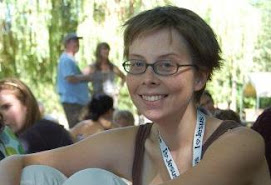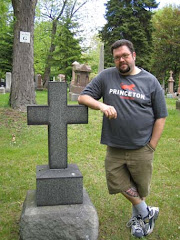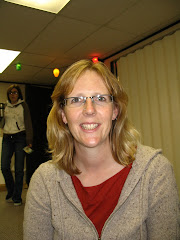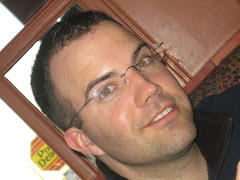I was having a conversation this morning with colleagues about the ministry of youth and young adults. We talked about how hard it is that people expect us in youth ministry to be trying to get youth to participate in church every Sunday morning. I struggle with that myself. And the truth is, our effort in youth ministry is to try to create a culture of deep spiritual engagement. This doesn't happen much in church. At least it doesn't happen in many of the congregations I've attended. This separation of secular and spiritual may have once been as easy as society and church but we can't really say that anymore. I've experienced church professionals who don't want to get involved in spiritual disciplines for a number of reasons. Church (believe it or not) is not mainly a spiritual institution for many. For some it's a morality watchdog, for others, a business and for others, a place of civic responsibility. When people ask me about my model for youth ministry, it amkes me wonder about their model for church.
And so, I have decided to cheat a bit... and post someone else's reflection. When I read it, I realized that it seemed to contain the kernel of purpose to this year of Sabbath we have begun. And it also speaks to that special clash of overwork and overconsumption that hits us in Advent and Christmas... a time that can feel so spiritually devoid to people, whether Christian or not:
Moderator's Christmas Message 2007: The Candle of Love
Greetings, friends, in this season of Advent, anticipation, and longing. I hope that this message finds you encountering God’s new birth among us in ways that inspire you and your passion for living the Way of Christ in the world.
Let me tell you a short story about an experience that inspired me and builds me up at this time of year. It was the usual busy week leading up to Christmas—hospital visits, communion for those who are shut-in, delivering Christmas hampers, and carolling. Christmas Eve brought the hot crush of visitors and many wired-up children for worship.
By Christmas morning, I was feeling the kind of tired that many people in ministry feel on Christmas. I arrived at the sanctuary early and was enjoying the sun slanting in through the windows and the silence of the big, empty room. I set up a small table at the front of the sanctuary, laid a tablecloth on it, and set out the ceramic crèche from the altar and put the Advent wreath beside it. I knew there would be a small group this Christmas morning, and by 11:00 o’clock there were 9 or 10 of us gathered around the table. First the children told the Christmas story to us in their own words using the ceramic figures, moving the cows and shepherds, Mary and Joseph around the space. We sang familiar Christmas songs and gave thanks to God for Jesus’ birth among us.
Then we used a liturgy that was written by a young man who had grown up in our congregation who was now a minister elsewhere. The liturgy invited us as we lit each Advent candle to some activity or to answer some question. We lit the candle of hope, for example, and went around the circle and talked about the places in the world where we find hope. When we got to the fourth candle, the candle of love, the invitation was to go around the circle and say to each person by name, “I love you and God loves you.” It’s quite an experience to have our friends say to us, “David, God loves you and I love you.” It’s a powerful experience to say to my brothers and sisters in our little church community, “Cindy—or George—I love you and God loves you.”
Well, when it became time for Sarah, a young mom, to go around the circle, she did like the rest of us. We went around and there were warm tears and friendly laughter after each turn. She came to Matteo, her seven-year-old son, and she said, “Matteo, I love you and God loves you.” And here is the breathtaking moment for me. Matteo simply said, “I know.”
I don’t know when it is that we forget or stop trusting that we are beloved. I do know that that is part of the promise of the birth story that we hear at this time of the year. A reminder that God loves us and that we are beloved. And we come to church, we come into Christian community, to be reminded of that and to learn how to live that love in the world.
My prayer for you, and for the strangers who will worship with us on Christmas Eve, and for those we reach out to in the world is that somehow you and they will hear through the voice of The United Church of Canada, “God loves you and we love you.” And that it will be said and enacted through our life together with such truth that they will be able to respond simply, “I know.” Because there begins the journey of faith with God—with the story of our belovedness expressed through the birth of a small child born in a manger.
Peace be with you. Amen.
The Rev. Dr. David Giuliano, 39th Moderator (2006-2009)











No comments:
Post a Comment